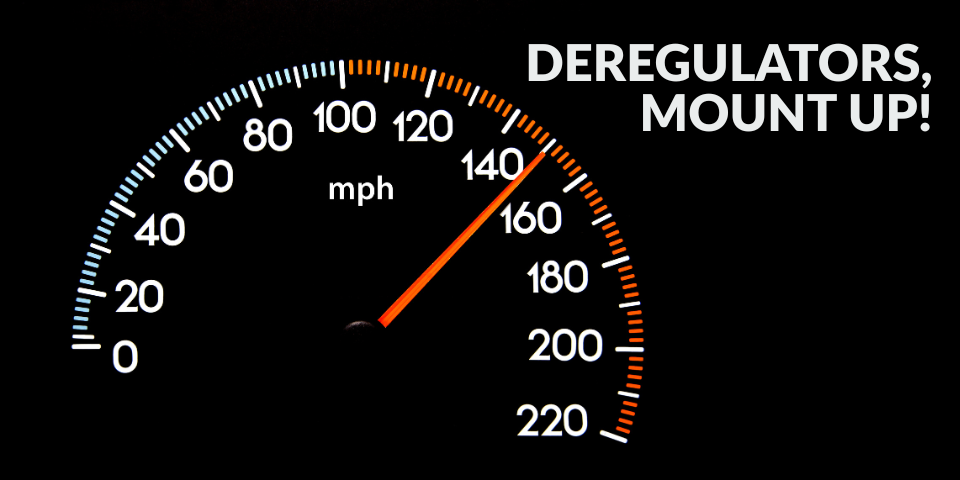In The News

Deregulators, Mount Up!
U.S. Representative Josh Brecheen of Oklahoma is once again challenging federal regulators over proposed speed limiter mandates on heavy commercial vehicles. His latest legislative effort, the Deregulating Restrictions on Interstate Vehicles and Eighteen-Wheelers (DRIVE) Act, seeks to prohibit the Federal Motor Carrier Safety Administration (FMCSA) from requiring that trucks weighing over 26,000 pounds be equipped with speed limiting devices.
“I’m Just a Bill”
The now reintroduced bill revives efforts from Brecheen’s failed 2023 version, which garnered support from 43 Republican co-sponsors. At the heart of the issue is the FMCSA’s intent, first publicized in 2022, to enforce a rule that would cap truck speeds potentially as low as 60 mph — significantly below the speed limits posted on most highways and interstates. That proposal drew more than 15,000 public comments, with the majority coming from owner-operators and small carriers expressing strong opposition.
Brecheen, who has firsthand experience operating semis and hauling equipment and livestock, argues that safety is better achieved by allowing truckers to travel at the same pace as surrounding traffic, rather than enforcing a rigid federal speed cap. “Safety is enhanced in keeping with the flow of traffic as set by state law, not on a one-size-fits-all regulation enforced by bureaucrats in Washington,” Brecheen said in a press release. He also criticized the Biden administration’s push for speed limiters, calling it a “blatant overreach.”
Regulation Saturation?
His stance resonates deeply with independent drivers and small trucking firms, who argue that speed limiter mandates not only compromise safety but also threaten efficiency and profitability. A coalition of 17 trucking organizations, including the Owner-Operator Independent Drivers Association (OOIDA) and the National Association of Small Trucking Companies, wrote a letter to President-elect Donald Trump before taking office again in January urging him to block such regulations.
In the letter, the coalition warned that forcing trucks to travel below posted speed limits would result in longer driving hours to cover the same distance — increasing driver fatigue and intensifying the strain of federal hours-of-service rules. “This mandate will also literally slow freight movement across the country,” the letter stated. “To account for this, more trucks will be needed... which would increase road congestion.” The potential ripple effects on supply chains and economic growth have become central to the debate.
Regulation Consideration?
However, support for speed limiters is not entirely absent. Many large carriers, represented by the American Trucking Associations, already voluntarily use them and advocate for a federally mandated maximum of 65 mph for trucks without advanced safety features, and 70 mph for those with automatic emergency braking and adaptive cruise control. These companies argue that speed-limited fleets reduce accident severity and level the playing field in terms of operational costs and competition.
With a formal rulemaking expected in May, the DRIVE Act signals a growing rift between large corporate fleets and independent operators over how best to ensure highway safety while maintaining freight efficiency. Whether Brecheen’s bill will succeed this time around remains to be seen, but it’s clear the debate over speed limiter mandates is far from over.





